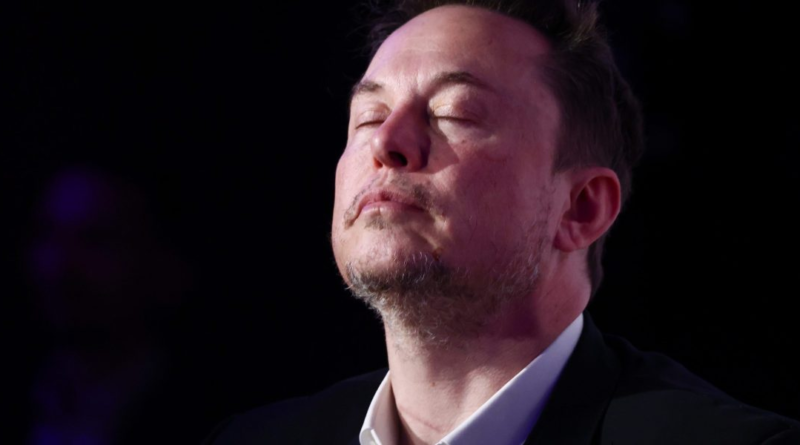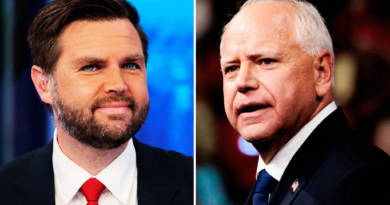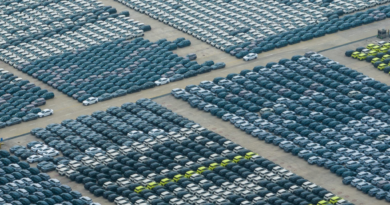Elon Musk says his religion is ‘one of curiosity’ and it’s why he believes ‘we need more humans’ in space
Elon Musk owns SpaceX, one of the most valuable private companies in the world, with a valuation of $180 billion. But what does he believe about life, the universe, and everything?
The billionaire dropped some hints about his belief structure in an interview with conservative commentator Ben Shapiro posted to X on Wednesday.
Musk has said before that he’s “never been particularly religious,” and Shapiro—noting his own stance on the importance of “a belief in a higher power”—probed the billionaire about his philosophy.
Musk agreed that “you can’t be, like, a nihilist or something,” to which Shapiro responded, “Exactly, nihilism doesn’t tend toward anything … How do you get out of the nihilist box and find what to do?”
In response, the world’s richest person outlined some of the thinking that’s helped fuel SpaceX’s success, and he hinted at an ambition for humanity that extends far beyond his own lifetime.
“Well, my religion, for the lack of a better word, is one of curiosity, where we want to expand the scope and scale of consciousness on Earth and beyond Earth,” he said. “And in order to do that, we need to increase the number of conscious beings, and we need to advance technology, such that we can have a self-sustaining city on Mars, ultimately populate the whole solar system, and then go beyond our solar system to other star systems. And therefore, we need more humans. Pretty simple.”
When Shapiro noted, “That’s an amazingly different goal than what we’ve had in the past,” Musk responded, “Yeah, well, I propose this as a new philosophy.”
He then clarified that the philosophy isn’t new so much as niche, but “hopefully getting a bit bigger.”
‘A trillion humans’
Musk has long argued that the Earth and the solar system should be much more populated with humans, and he’s encouraged people to have more children while contending that “the biggest problem the world will face in 20 years is population collapse.”
Musk isn’t the only billionaire space entrepreneur calling for a bigger human population in the solar system. Amazon founder Jeff Bezos, who owns the SpaceX competitor Blue Origin, said on the Lex Fridman Podcast recently that he and Musk are “very like-minded” in their space ambitions, despite an intense rivalry.
“I would love to see, you know, a trillion humans living in the solar system,” Bezos said. “If we had a trillion humans, we would have at any given time a thousand Mozarts and a thousand Einsteins … Our solar system would be full of life and intelligence and energy.”
What companies like Blue Origin and SpaceX are doing, Bezos said, is creating the space infrastructure upon which future generations can build greater things.
Musk said the purpose of his philosophy “is that the more we expand the scope and scale of consciousness, the more we are able to understand the reality that we live in—the nature of the universe.”
A city on Mars?
Consciousness seems to be on Musk’s mind a lot. On the Full Send Podcast in 2022, he said, “We’re a pattern of molecules that can talk and think and feel … We should have more kids and expand consciousness and probably have digital consciousness, too. More people, more thinking equals more consciousness.”
Talking to Shapiro, he said the fact there’s no evidence of aliens suggests that “the tiny candle of consciousness that constitutes humanity is all that there is in this vast darkness. And I think we should assume that that is the case until we actually have firm evidence to the contrary.”
He said that SpaceX’s gargantuan Starship—which underwent a few tests last year and will be tested more this year—is designed to enable a city on Mars. But he also noted there are no guarantees that humanity will be able to achieve a self-sustaining presence on another planet.
“The window of opportunity to make life multi-planetary and secure the future of consciousness may be open for a long time, or it may be open for a short time,” he said. “I think it would be wise to not assume that it will be open for a long time.”




